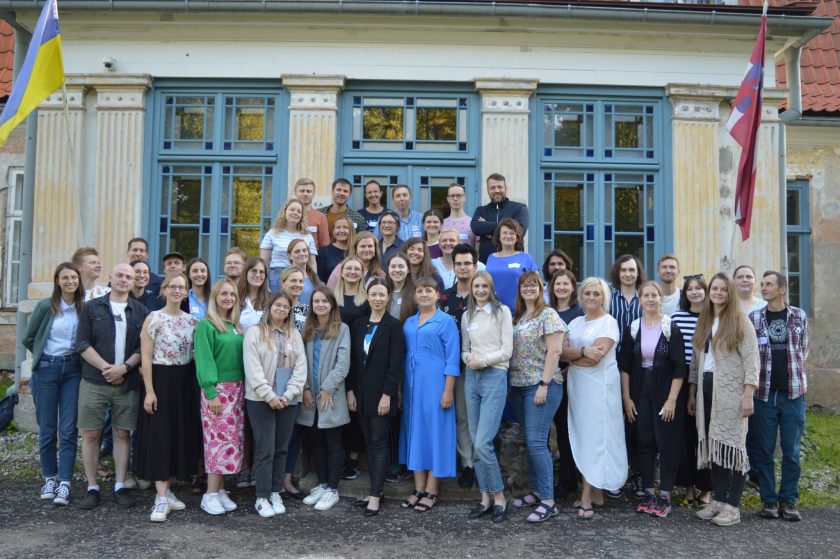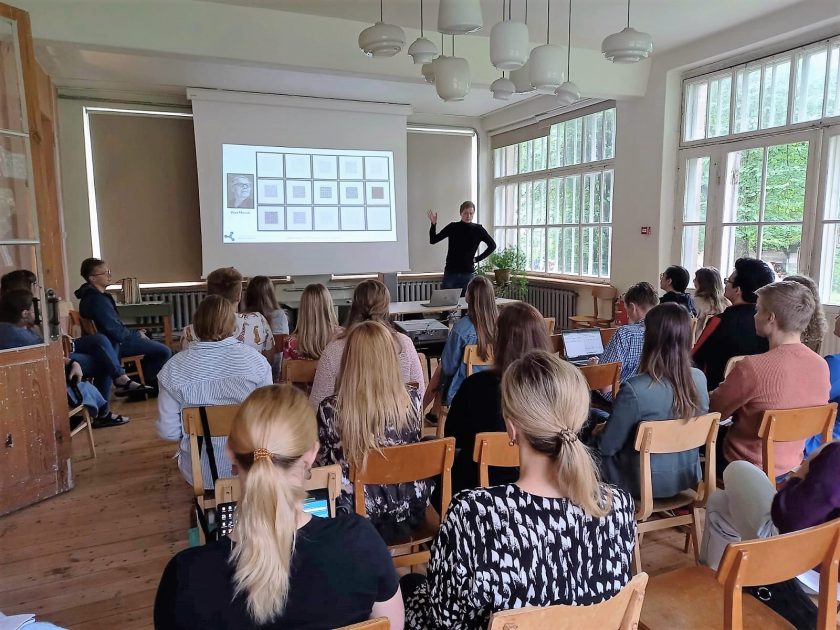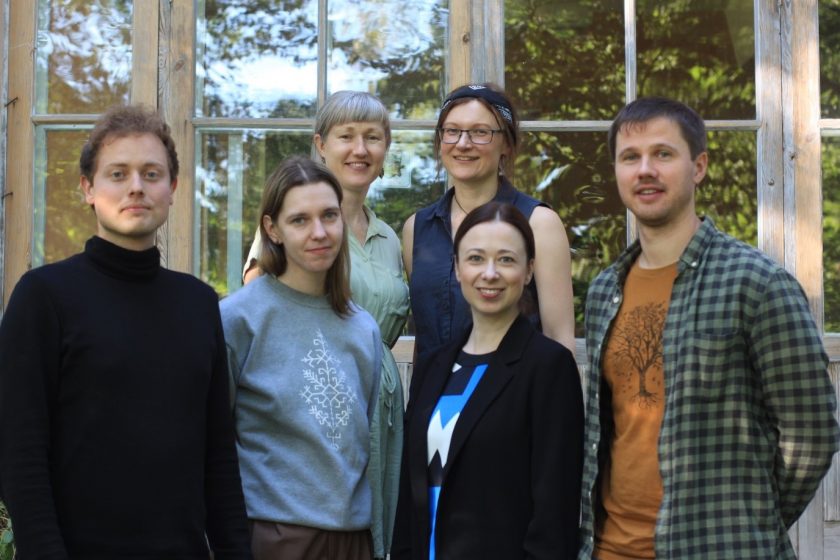
The Summer School of the Latvian Association of Young Researchers (LJZA) was held for the third time on 28-30 July. Young and experienced Latvian, diaspora and foreign scientists from various fields met at Rucka Manor in city Cēsis to explore and discuss the interaction between science, technology and academic ethics in lectures and workshops.
Summer School participants learned,
– how to build a successful career in science,
– what productive academic writing and publishing are,
– the use of artificial intelligence and ChatGPT in research,
– what academic ethics are and what to do if they are violated.
Participants also had the opportunity to practice their idea generation and collaboration skills, and to present their research topics in a short and focused format, competing with other participants for the best presentation.
We are proud that several EDI colleagues also participated in this Summer School, not only as listeners but also as speakers, sharing their experiences.
EDI researcher Oskars Teikmanis reflects on the LJZA Summer School:
“For approximately a decade, the Latvian Association of Young Researchers has been organizing summer schools, with a temporary pause during the Covid outbreak. The recently concluded summer school marked the third one since the pandemic’s end. Personally, this was my second time as a participant, but this time, I also had the privilege of giving a lecture.
From my first summer school experience, I had high expectations of encountering brilliant minds and engaging in captivating discussions. Eager to immerse myself even further, I decided to participate in a more “active” role. Consequently, I initiated a thought-provoking discussion on the utilization of ChatGPT in research and daily life, as it has become an indispensable tool for many people over the past year. During my lecture, I shared multiple examples of how ChatGPT had significantly aided my research while also highlighting its limitations. The numerous questions and positive feedback from the participants reassured me that this talk was indeed worthwhile.
As expected, the other lectures were equally exceptional. Matthieu Cisel provided valuable advice on academic writing practice, Matīss Reinfelds offered valuable insights into academic ethics in Latvia, and Aija Lulle delivered an insightful lecture on successful international publishing.
Looking ahead, I am eagerly anticipating the next summer school, and I wholeheartedly recommend this exciting weekend to any aspiring or current scholars seeking an enriching experience.“

